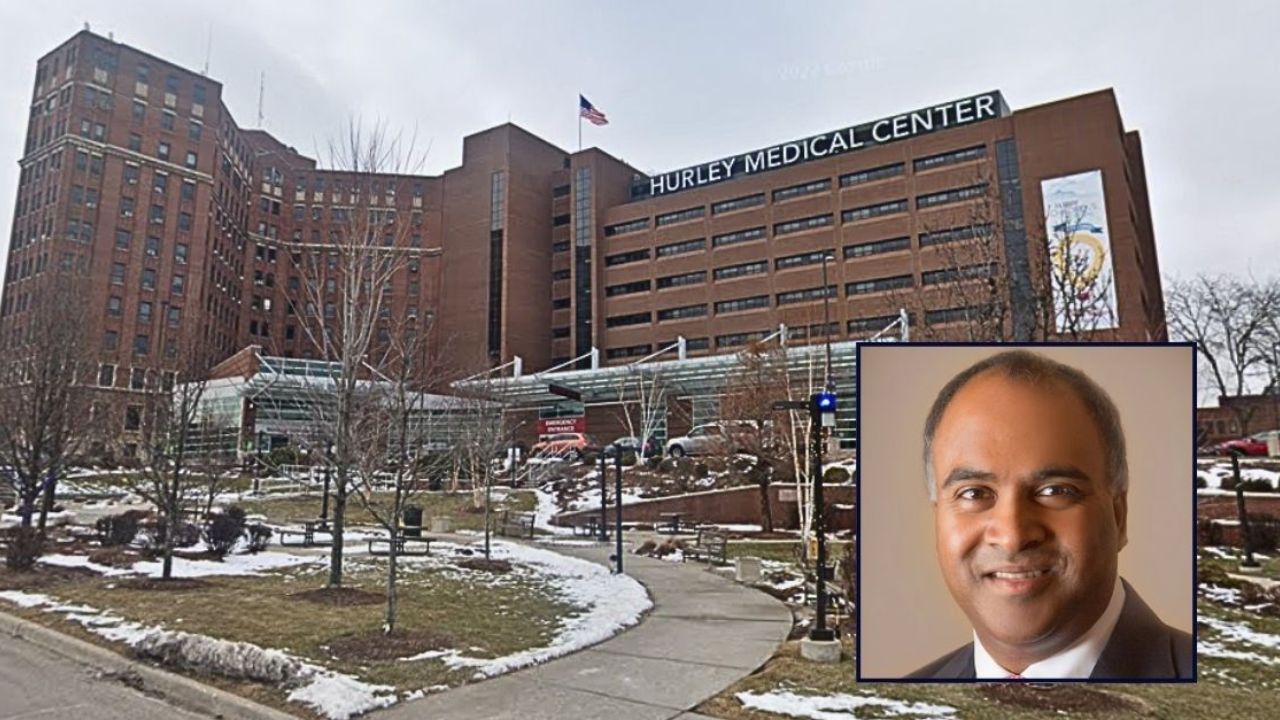Flint, MI – A Michigan neurosurgeon has filed a federal lawsuit against Hurley Medical Center in Flint, alleging the hospital retaliated against him after he raised serious concerns about patient safety in the wake of a 12-month-old baby’s death.
Doctor Alleges Hospital ‘Lost Track’ of Infant Before Death
According to the lawsuit, Dr. Sudesh Ebenezer, a neurosurgeon contracted through the Shah Practice Group at the Insight Institute of Neurosurgery and Neuroscience, was called on December 9, 2022, to treat a 12-month-old child suffering from a traumatic head injury.
However, Ebenezer claims that as he prepared for surgery, Hurley’s trauma staff mistakenly told him the surgery was canceled because the child had been “medically evacuated” to another hospital. In reality, the lawsuit alleges, the baby was still in Hurley’s care — staff had “lost track” of the patient.
The complaint, filed in the U.S. District Court for the Eastern District of Michigan, states that the child remained without critical diagnostic tests and radiological evaluations, preventing immediate surgical intervention. The infant later died on December 10, 2022.
Missed Tests and Delayed Treatment Cited in Complaint
Ebenezer’s lawsuit details multiple alleged failures by hospital staff, including:
- Not performing a CT scan of the child’s head despite medical advice.
- Failing to conduct coagulation labs to assess blood clotting.
- Neglecting to correct gross coagulation abnormalities.
- Not addressing high pCO₂ levels (carbon dioxide in the blood).
- Failing to obtain chest imaging in a timely manner.
The neurosurgeon said he was “alarmed” upon arriving at the hospital and discovering these omissions. He claims he repeatedly communicated his concerns to the attending trauma surgeon, members of the trauma team, and physician assistants over the two-day period.
Hospital Accused of Retaliation and Deflection
Instead of addressing the safety lapses, Hurley Medical Center allegedly blamed Ebenezer for the infant’s death in an effort to “silence his complaints and shield its own employees from accountability.”
The lawsuit claims the hospital’s actions violated Ebenezer’s First Amendment rights and tortiously interfered with his contractual relationship with Shah Practice Group.
As a result, Ebenezer was removed from Hurley’s Neurosurgery Trauma Panel and call schedule, drastically reducing his income “by more than sixteen times” and causing significant financial and reputational harm, according to the filing.
Official Letter and Alleged Retaliation
Days after the incident, Hurley’s trauma medical director reportedly sent Ebenezer a letter criticizing his “timeliness” and “engagement” during the emergency case, citing “patient safety and quality of care concerns.”
Ebenezer argues that this letter served as a retaliatory action meant to justify his removal and to divert attention from internal errors that led to the child’s death.
Lawsuit Seeks Damages and Injunctive Relief
In his lawsuit, Ebenezer is seeking compensatory damages for past and future earnings loss, as well as injunctive relief to restore his position and reputation. The complaint asserts that Hurley’s actions amount to both professional defamation and constitutional violations.
A Hurley Medical Center spokesperson did not respond to media requests for comment on Sunday.
Patient Safety Concerns Highlight Broader Systemic Issues
This case brings renewed attention to hospital accountability and patient safety protocols, particularly in trauma units treating critically injured children. Medical experts note that communication errors and mismanagement of trauma care can have fatal outcomes, emphasizing the need for clear internal coordination and timely testing in pediatric emergencies.
Conclusion
Dr. Ebenezer’s lawsuit underscores the potential consequences of medical mismanagement and alleged institutional retaliation. The court’s decision could have broader implications for whistleblower protections within hospital systems and the responsibilities of medical institutions to address patient safety concerns transparently.
What do you think about this case? Share your thoughts in the comments below.




